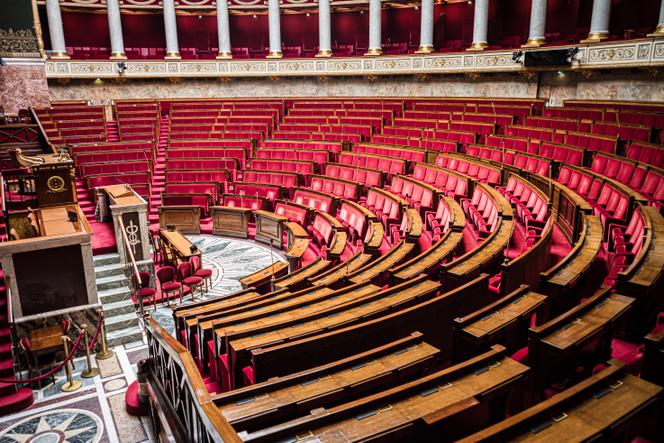


Although a new government has yet to be appointed, the members of France's newly elected Assemblée Nationale have begun a decisive week. From the election of the chamber's president and the official registering of the parliamentary groups (July 18), to the designation of the members of the Bureau (July 19) and the forming of the standing committees (July 20), the members of the 17th legislature of the Fifth Republic will have to take lead in the face of a bogged-down president and a prime minister forced to resign. In an unprecedented situation, they will have to find a way to make the Assemblée work without a majority.
The election of the Assemblée's president will provide an initial snapshot of the balance of power between the four main blocs: the left, President Emmanuel Macron's coalition, the right and the far right. But they will also provide an insight into the propensity of these groups to split or, on the contrary, to remain homogeneous, in order to obtain the most strategic parliamentary positions. The Assemblée is likely to have no fewer than 11 groups – a record. Macron, who declared on July 7 that he wanted to wait for the Assemblée to "structure itself" before appointing a prime minister, is closely monitoring the ongoing movements.
The confirmed seats in the new Assemblée Nationale
Macron, who does not have a hand in the parliamentary situation, still hopes that his camp can rally the support of other political forces behind him, notably on the ballot for the presidency of the Assemblée.
Campaigning for re-election, Braun-Pivet, the first woman to preside the Assemblée, is seeking support from the right to succeed in a ballot that comprises up to three rounds – the first two require an absolute majority to be elected; in the third the candidates with the most votes is elected. Braun-Pivet's candidacy has been far from being unanimously endorsed within the presidential party Renaissance. She has found herself in turmoil since the publication of an article in Le Figaro reporting a "tacit agreement" between her and the far-right Rassemblement National (RN) to get herself re-elected. Her entourage denied this claim on Saturday following sharp criticism from the left.

Facing the former president of the Assemblée are the other candidates being considered for the fourth highest office in the nation, including centrist independent Charles de Courson, who has held his seat since 1993, and former Assemblée vice-presidents Naïma Moutchou (Horizons, center-right), Sébastien Chenu (RN), and Annie Genevard (right).
You have 66.33% of this article left to read. The rest is for subscribers only.
